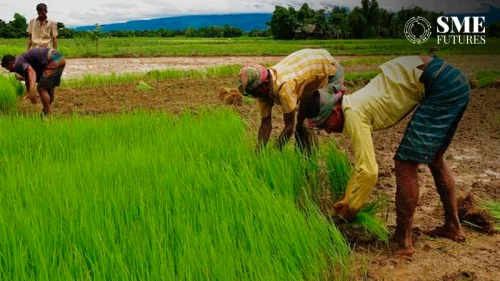The latest edition of the Best Companies for Women in India (BCWI) report, conducted by workplace culture consultancy Avtar in collaboration with Seramount, has revealed that women’s representation across industries in India has remained steady at 36.6%, with nearly 40% of women employed at the entry level. This survey, which dives into women’s participation across sectors, highlights several key trends in gender diversity, leadership, and retention in India Inc.
The Banking and Financial Services Industry (BFSI) leads the way with 24.5% women in corporate executive roles, followed by the FMCG sector at 21.5%. Interestingly, Global Capability Centers (GCCs) report the lowest attrition rate of women at 10%, with the FMCG sector excelling in retaining women in leadership roles, boasting a female attrition rate of just 2.6% compared to 7% for men.
Rise in PwD inclusion and a new category for emerging icons
This year’s report also spotlighted inclusive workplace environments, with 98% of companies focusing on building spaces friendly to People with Disabilities (PwDs). This reflects significant progress from 58% in 2019, as noted in the sixth edition of the Most Inclusive Companies Index (MICI). Furthermore, a new category, Best Companies for Women in India – Emerging Icon, was introduced, acknowledging smaller organisations (100-500 employees) where 33% of the workforce and 26% of leadership are women.
A sector-wise breakdown
The IT sector emerged as the single largest employer of women, with 24% of companies from the sector featured on the BCWI list, followed by BFSI at 11%. Other sectors, including manufacturing, healthcare, pharma, and hospitality, also made notable contributions, but trail in comparison.
Key voices on gender diversity
Dr. Saundarya Rajesh, Founder and President of Avtar, commented on the evolving workplace landscape: “We have made significant progress in many areas such as the sheer volume of the women workforce, the facilities and flexibilities provided and the benefits to name a few but yet far behind in leveraging the opportunity – of enabling women in leadership positions, of ensuring rise in women participation and distribution across sectors and needless to emphasise women’s safety and well-being at the workplace so that they are encouraged to stay and grow,”
She further added, “It is remarkable to witness how organisations across geographies are increasingly committed to creating work environments where diversity is empowered to thrive. The BCWI study and the MICI continue to be a beacon of progress and as we move forward, we remain committed to enabling workplaces where equality is not just a goal, but a reality,”
Subha Barry, President of Seramount, emphasised the importance of inclusive strategies, stating, “Most Inclusive Companies Index helps companies focus their efforts to understand gaps and provide specific strategies, programs, tools, and resources to help raise the standard on DEI strategies for under-represented talent including gender, LGBTQ+, PWD, and different generations.”
The 2024 BCWI listing saw participation from 361 organisations across a wide range of industries, with companies like Accenture, Citibank, and Tech Mahindra among those recognised for their commitment to gender diversity and inclusion.
2024 top companies for women in India:
- Accenture Solutions Private Limited
- AXA XL India Business Services Pvt. Ltd.
- Barclays in India
- Cairn Oil and Gas, Vedanta Limited
- Citibank
- IBM India Private Limited
- KPMG in India
- Lear Corporation
- Tech Mahindra Limited
2024 Champions of Inclusion (MICI):
- Accenture Solutions Private Limited
- AXA XL India Business Services Pvt. Ltd.
- Citibank
- IBM India Private Limited
- Infosys Limited
- KPMG in India
- Midland Credit Management India Private Limited
- Target Corporation India Pvt. Ltd.
- Tech Mahindra Limited
This year’s findings highlight that while India Inc. is making strides in gender diversity, especially in terms of entry-level representation, challenges remain in achieving balanced leadership roles and long-term retention of women in the workforce. The emphasis on inclusivity, however, continues to expand, with PwD-friendly environments becoming more prevalent across industries.











